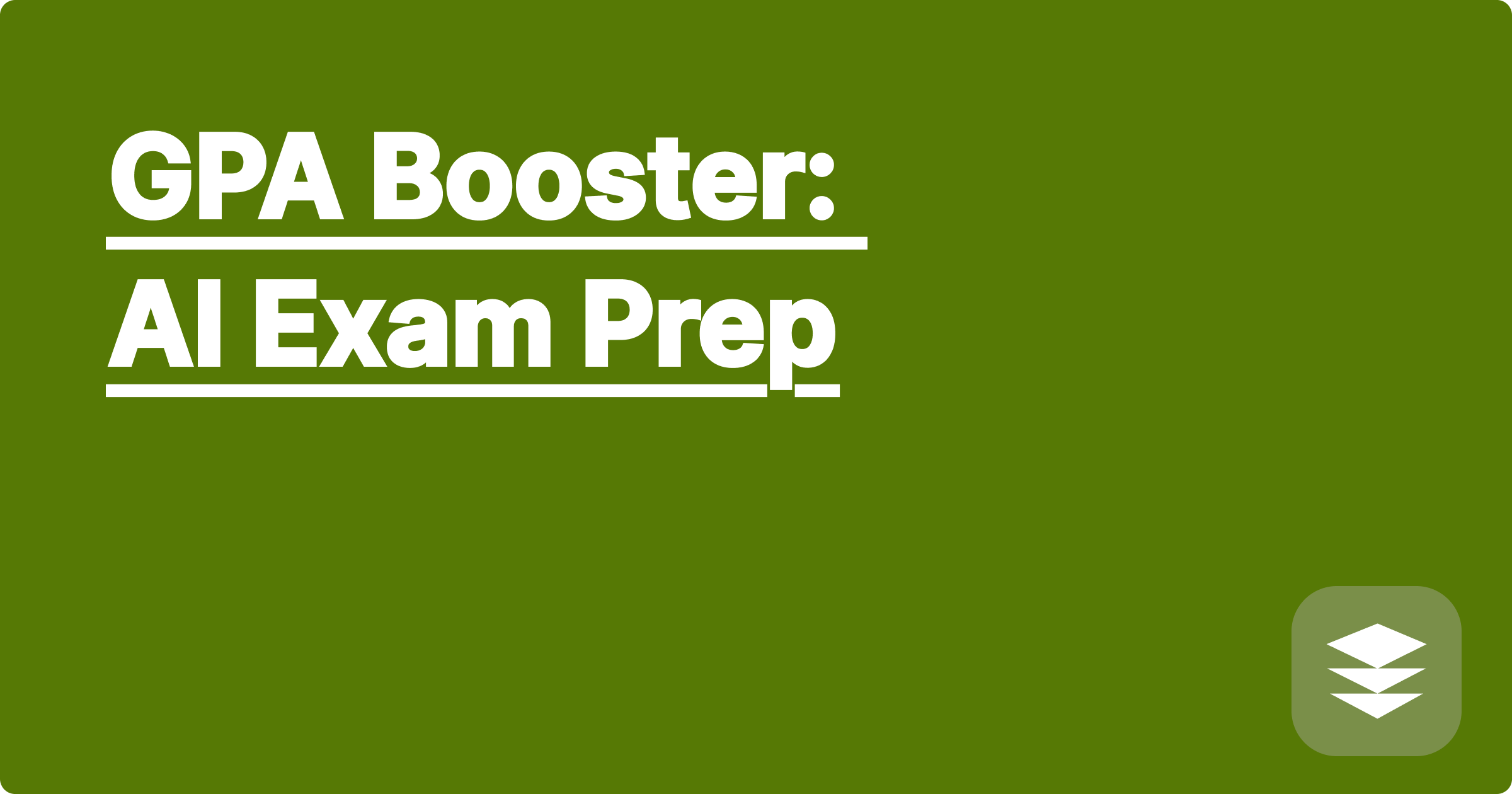
The relentless pressure to achieve high GPAs in STEM fields is a familiar struggle for students and researchers alike. The sheer volume of complex material, demanding coursework, and the ever-increasing competition create a challenging environment. However, the rise of artificial intelligence offers a powerful new tool to navigate this academic landscape, providing personalized learning support and enhancing exam preparation strategies. This blog post explores how AI can become a valuable asset in boosting your GPA, specifically focusing on its application in preparing for STEM exams.
This is particularly crucial for STEM students and researchers because the subjects are notoriously challenging, demanding a deep understanding of complex concepts and often requiring significant time investment for mastering the material. The pressure to perform well is amplified by the highly competitive nature of STEM fields, making effective study strategies paramount. By leveraging AI tools, students can significantly improve their learning efficiency and ultimately enhance their academic performance, securing better grades and opening doors to future opportunities.
The core challenge for STEM students lies in the multifaceted nature of the subject matter. Physics, chemistry, mathematics, and engineering courses demand not only rote memorization but also a profound understanding of underlying principles, the ability to solve complex problems, and a strong grasp of abstract concepts. Traditional study methods, such as passively rereading textbooks or attending lectures alone, often prove insufficient. Students frequently struggle to identify their weak areas, find relevant practice problems, and receive personalized feedback. Furthermore, the sheer volume of material to cover can be overwhelming, leading to stress and potentially hindering academic progress. The difficulty in applying theoretical knowledge to practical problem-solving is another significant obstacle. Many students find the transition from understanding concepts to applying them in exams difficult, leading to poor performance despite a good grasp of the fundamental principles. This necessitates a more targeted and efficient approach to learning and exam preparation.
Fortunately, advancements in AI offer a powerful solution. Tools like ChatGPT, Claude, and Wolfram Alpha can significantly enhance exam preparation by providing personalized support and addressing specific learning needs. ChatGPT and Claude, being large language models, can generate practice problems tailored to specific learning objectives, explain complex concepts in simpler terms, and even provide feedback on student responses. Wolfram Alpha, on the other hand, excels at solving complex mathematical problems and providing detailed step-by-step solutions, which is invaluable for subjects like physics and engineering. By combining these powerful AI tools, students can create a highly effective and personalized exam preparation strategy.
First, identify your weak areas. Carefully review past assignments, quizzes, and notes to pinpoint specific topics or concepts that you struggle with. Next, use ChatGPT or Claude to generate practice problems focusing on these weak areas. Specify the level of difficulty and the type of problems you want. For instance, you can ask ChatGPT to generate five challenging problems on thermodynamics or request Claude to create ten multiple-choice questions on organic chemistry reaction mechanisms. Once you have a set of practice problems, attempt to solve them. Then, use Wolfram Alpha to verify your solutions and gain a deeper understanding of the underlying principles. If you encounter difficulties, use ChatGPT or Claude to explain the concepts or provide alternative solutions. This iterative process of problem-solving, verification, and clarification will strengthen your understanding of the subject matter. Finally, review the solved problems and identify any recurring patterns in your mistakes. This process allows for targeted improvement in specific areas.
Let's say you're struggling with solving differential equations in your physics course. You can ask Wolfram Alpha to solve a specific differential equation, providing step-by-step solutions and explanations. For example, you might input "solve dy/dx + 2y = e^x". Wolfram Alpha will provide the solution along with the methodology used. If you're unsure about a specific step, you can use ChatGPT to clarify the underlying mathematical concepts or ask for alternative approaches to solving the problem. Similarly, if you're struggling with organic chemistry reaction mechanisms, you can ask ChatGPT to explain a specific reaction, providing detailed descriptions and diagrams. You can also ask it to generate practice problems on similar reactions, helping you solidify your understanding. In another example, imagine you need to understand the concept of eigenvalues and eigenvectors in linear algebra. You can ask Claude to provide a simplified explanation, along with illustrative examples and visualizations.
Effective use of AI tools requires a strategic approach. Don't rely solely on AI for understanding; use it as a supplement to your primary learning resources. Active learning is crucial. Don't just passively read explanations; actively engage with the material by solving problems and asking clarifying questions. Experiment with different AI tools. Each tool has its strengths and weaknesses; find the combination that best suits your learning style and the specific challenges you face. Regularly review and consolidate your learning. Use AI to generate quizzes and summaries to reinforce your knowledge and identify areas needing further attention. Time management is essential. Allocate sufficient time for using AI tools effectively without neglecting other aspects of your studies. Be mindful of potential limitations*. AI tools are not a substitute for critical thinking and independent learning. Always critically evaluate the information provided and cross-reference it with other sources.
To maximize the benefits of AI-powered exam preparation, begin by identifying your specific academic weaknesses. Then, utilize AI tools like ChatGPT, Claude, and Wolfram Alpha to generate personalized practice problems and receive detailed explanations. Regularly review and consolidate your learning, utilizing AI-generated quizzes and summaries. Remember that AI is a tool to enhance your learning, not a replacement for hard work and dedication. By combining AI-powered assistance with diligent study habits, you can significantly improve your exam performance and achieve your academic goals.